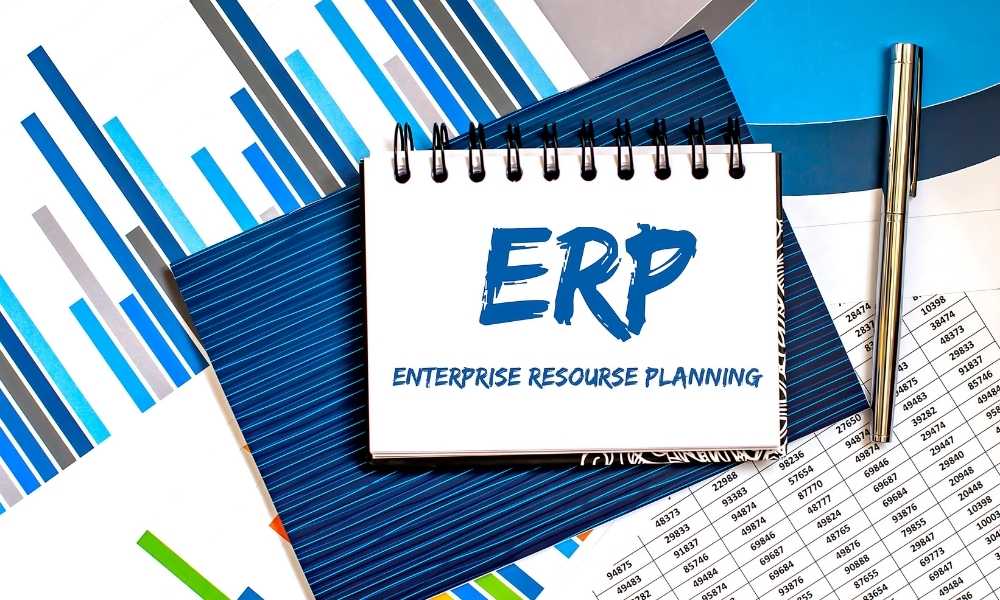For organizations that wished to use ERP systems before the introduction of cloud computing, on-premise deployment was the only choice. Today, practically every ERP software supplier offers cloud-based ERP software choices! Some businesses specialize in them.
The decision between cloud-based ERP and on-premises ERP might be difficult for a company considering purchasing ERP software. That’s why it’s crucial to examine the advantages and disadvantages of each choice before deciding which is best for your company. We’ll go over the fundamental distinctions between cloud and on-premises ERP software and some of the most critical considerations to consider when making your decision.
ERP for the Cloud
The most widely used ERP software today is cloud ERP. These software suites are generally web-based and run on the ERP vendor’s servers rather than on a company’s own. Cloud ERP software is delivered via a software-as-a-service (SaaS) model. The client pays a monthly charge for access to the software.
Pros of ERP
Easy to Implement
Cloud ERP systems, on the whole, are quick and simple to set up. Many can be implemented in weeks or months, which is a significant advance over traditional on-premise systems, taking up to a year to complete.
Greater Data Control
A company that uses on-premier ERP has complete control over its data storage, usage, and access. Of course, taking responsibility for data security procedures is a must because the alternative is a possibly disastrous data leak.
Added Variety is a Plus
The cloud ERP industry now has more options than ever before, and that number is growing! As more ERP suppliers make their cloud products available, any company looking for a cloud ERP system will have many terrific options, including industry-specific ERP systems tailored to their vertical needs.
Low Initial Cost
The upfront costs of cloud based ERP solutions are virtually always lower than those of on-premise ERP systems. The low upfront cost of a cloud ERP system is typically a deciding factor for small and medium businesses, as it helps them get up and running quickly without spending heavily on server hardware.
Mobile-friendly
Most cloud ERP systems have a centralized data source that syncs in real-time across all platforms, including mobile devices. In addition, many cloud ERP solutions now include mobile apps as a crucial component. These solutions include pre-installed mobile apps that may be used to execute critical business operations from nearly any device, including smartphones and tablets.
Updates are Made Automatically
The software receives automatic upgrades and security patches because Cloud-Based ERP platforms are controlled remotely by the providers. This eliminates the need for personnel to monitor for and install updates, ensuring that your system is constantly current.
Ownership of The System
You’ll have access to practically all Cloud-Based ERP solutions while paying the membership price. On the other hand, an on-premises ERP solution typically comes with a perpetual software license, allowing a company to utilize it indefinitely.
Customization Options are Numerous
Another of the on-premises route’s major advantages is the ability to customize. An on-premises system can be customized in ways that a cloud solution cannot. Despite the length of the procedure, the result will be a completely customized system, which is critical in highly specialized businesses.
Cons of ERP
Customization Options are Limited
The first major disadvantage of cloud ERP solutions is that they are frequently less adaptable than on-premise software. While SaaS ERP platforms are growing more adaptable, they still lack the same level of built-from-the-ground-up customization that on-premise ERP platforms offer.
Increased Ongoing Costs
A company must commit to paying a monthly SaaS subscription price when choosing a cloud ERP solution. As a result, a cloud ERP system’s total cost of ownership may eventually exceed that of an on-premises system.
Data Management is Limited
When using a cloud ERP system, a company must trust the cloud provider to protect its most sensitive data. Even when data is housed on third-party servers, careful legal inspection is required to ensure that a company retains complete control of its data.
ERP Software that is installed cheval cheval cheval cheval cheval cheval cheval cheval cheval cheval cheval cheval cheval
On-premise ERP software uses in-house server technology for its functionality and data storage. All ERP was on-premises before cloud computing, and it still has some advantages for the right company. Many firms still use on-premise ERP software because they aren’t ready to upgrade. Several ERP suppliers now offer hybrid systems that mix cloud and on-premise ERP advantages.
Maintenance and IT
In-house IT resources will be required to maintain server hardware and software for on-premise ERP systems. Budgeting time and resources for these duties is essential for operating an on-premises system, whether safeguarding the network or troubleshooting employees’ technological challenges.
Deployment is More Difficult
An on-premise ERP system can take much longer to implement than a cloud based ERP system, especially if the company wants to personalize many features. On-premise ERP adoption projects can eat up in-house IT resources for months, even with a well-managed rollout, let alone the turmoil that a poorly-managed rollout can create.
Mobile Options are Limited
Native mobile apps are less common in on-premises solutions. While some companies get around this by developing their bespoke apps for remote access to on-premises systems, it’s far from as simple as the possibilities provided by a Cloud-Based ERP solution.
Conclusion
Some companies prefer on-premise or cloud-based ERP solutions. For example, many small firms prefer cloud solutions because of their ease of use and low, upfront cost. Still, larger companies may be more ready to take on the risk and benefit of a highly tailored on-premises system.
However, in the end, the needs of each particular company must come first. That involves taking the time to consider all of the variables and see how they affect your company. ERP comparison sites can provide extra research materials, and it’s a good idea to take advantage of the free demos provided by most ERP manufacturers for a hands-on examination.


